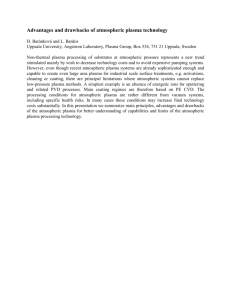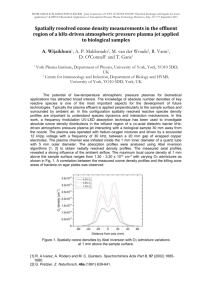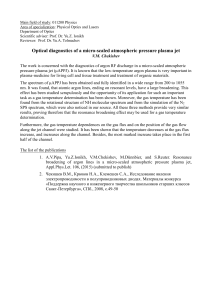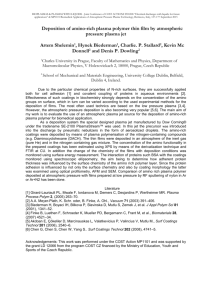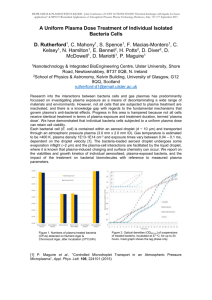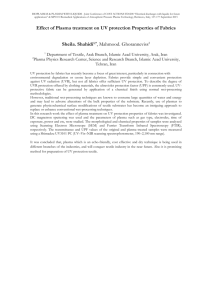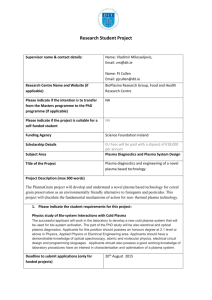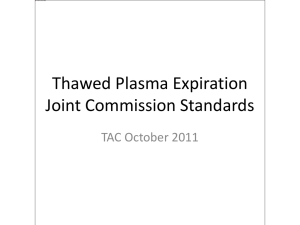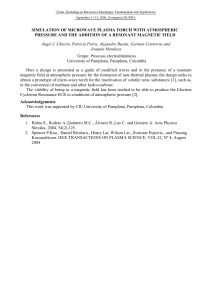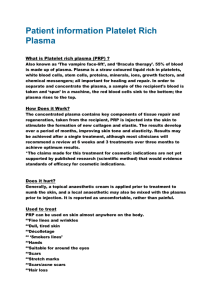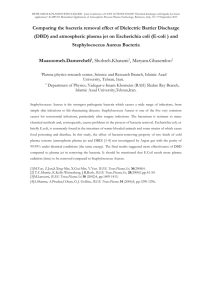Investigating the effect of frequency and voltage change of plasma
advertisement
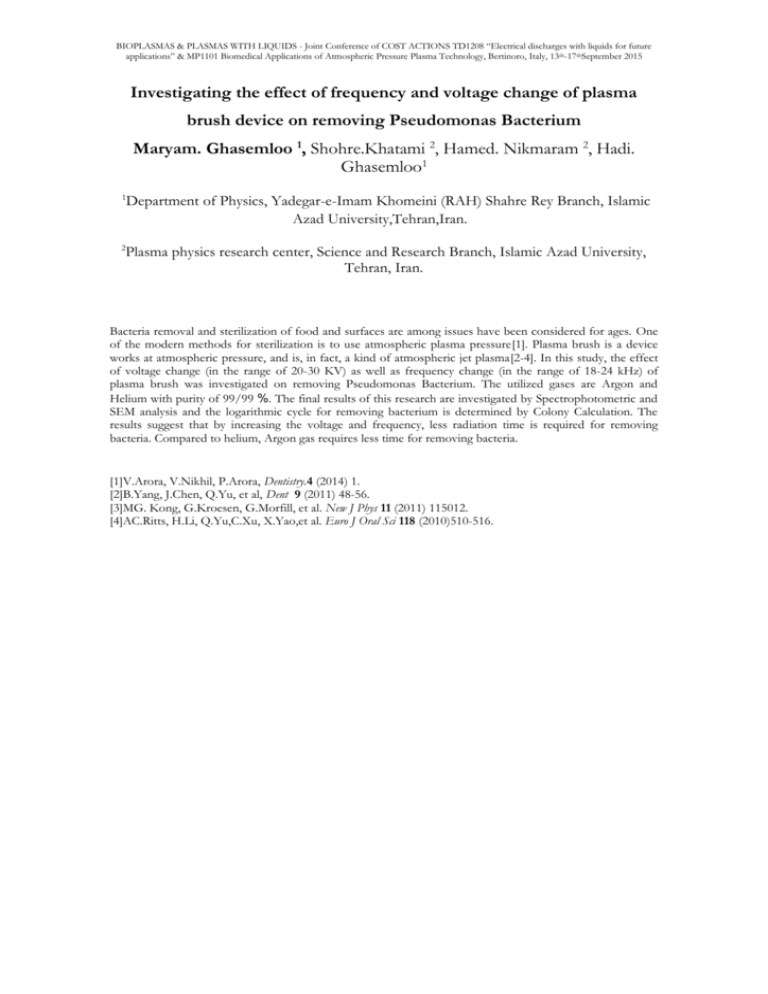
BIOPLASMAS & PLASMAS WITH LIQUIDS - Joint Conference of COST ACTIONS TD1208 “Electrical discharges with liquids for future applications” & MP1101 Biomedical Applications of Atmospheric Pressure Plasma Technology, Bertinoro, Italy, 13th-17thSeptember 2015 Investigating the effect of frequency and voltage change of plasma brush device on removing Pseudomonas Bacterium Maryam. Ghasemloo 1, Shohre.Khatami 2, Hamed. Nikmaram 2, Hadi. Ghasemloo1 1 Department of Physics, Yadegar-e-Imam Khomeini (RAH) Shahre Rey Branch, Islamic Azad University,Tehran,Iran. 2 Plasma physics research center, Science and Research Branch, Islamic Azad University, Tehran, Iran. Bacteria removal and sterilization of food and surfaces are among issues have been considered for ages. One of the modern methods for sterilization is to use atmospheric plasma pressure[1]. Plasma brush is a device works at atmospheric pressure, and is, in fact, a kind of atmospheric jet plasma[2-4]. In this study, the effect of voltage change (in the range of 20-30 KV) as well as frequency change (in the range of 18-24 kHz) of plasma brush was investigated on removing Pseudomonas Bacterium. The utilized gases are Argon and Helium with purity of 99/99 %. The final results of this research are investigated by Spectrophotometric and SEM analysis and the logarithmic cycle for removing bacterium is determined by Colony Calculation. The results suggest that by increasing the voltage and frequency, less radiation time is required for removing bacteria. Compared to helium, Argon gas requires less time for removing bacteria. [1]V.Arora, V.Nikhil, P.Arora, Dentistry.4 (2014) 1. [2]B.Yang, J.Chen, Q.Yu, et al, Dent 9 (2011) 48-56. [3]MG. Kong, G.Kroesen, G.Morfill, et al. New J Phys 11 (2011) 115012. [4]AC.Ritts, H.Li, Q.Yu,C.Xu, X.Yao,et al. Euro J Oral Sci 118 (2010)510-516.
